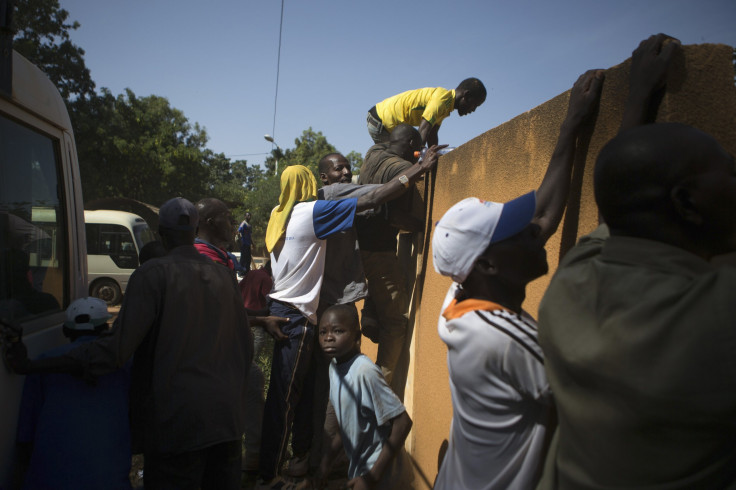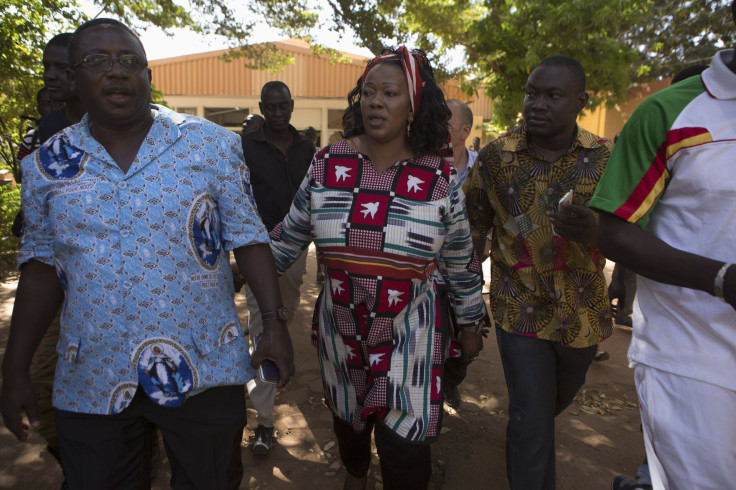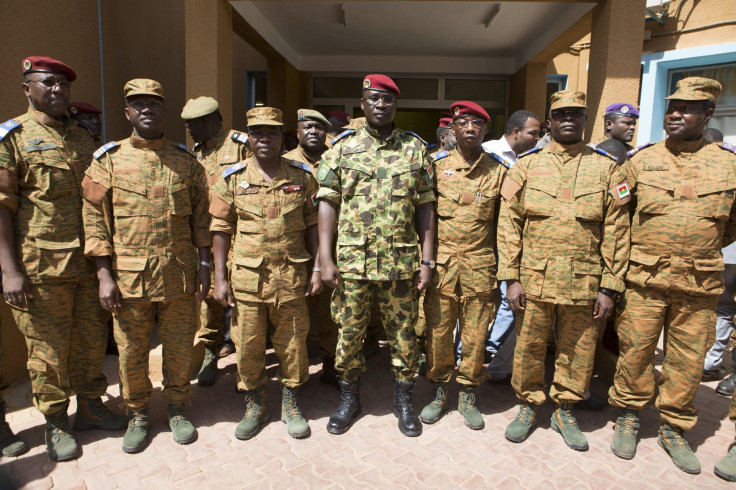Burkina Faso Crisis Update: Shots Break Out At State Television Headquarters

Burkina Faso’s military forcibly assumed control of state television and radio stations Sunday in the capital of Ouagadougou, forcing journalists to flee their offices. Witnesses said soldiers fired rifles into the air to break up a crowd near state TV headquarters shortly before the broadcaster went off the air.
The crowd gathered around the state TV headquarters because of rumors opposition leader Saran Sereme was ready to announce she was willing to take the lead from the military and oversee a civilian transition, the BBC reported. Sereme arrived at the headquarters shortly before the military drove out the crowd.

A massive protest movement ousted President Blaise Compaore after 27 years in power. Economic instability and little opportunity motivated many of the protesters. Violence broke out between protesters and the military, and the former set fire to government buildings, including the National Assembly building.
The military announced during the weekend it would take control of the country and lead a transition with elections within a year, but many protesters are distrustful. The military takeover is being called a coup by some.
An opposition group called for protesters to gather again Sunday and warned the military against “confiscating” the revolution in a statement.
“The victory born from this popular uprising belongs to the people, and the task of managing the transition falls by right to the people,” the statement read. “In no case can it be confiscated by the army.”
Some say the takeover, led by the deputy commander of the Regiment of Presidential Security, secretly seeks to restore Compaore. Lt. Col. Isaac Zida was “chosen unanimously to lead the transition period” after a brief power struggle involving army Chief of Staff Gen. Honore Traore.
A protest leader told a crowd at Ouagadougou’s National Square: “We are going to stay here. We are not going to move unless the military leave power.” Just last week 1 million protesters gathered at the square to demand Compaore step down after the National Assembly planned to allow the 27-year president to run for president again next year.

The African Union, United Nations and the United States all spoke out in opposition of the military takeover over the weekend. Mohammad Ibn Chambas, head of the United nations office for west Africa said there could be sanctions if the military doesn’t allow for a civilian transition.
“We are hoping for a transition led by civilians in line with the constitution,” he said. “[Zida] said he will reflect and try to work with the U.N., African Union and the economic community of West African states to find an acceptable agreement which conforms to the constitution.”
The U.S. State Department condemned the military takeover in a statement on Saturday:
“The United States condemns the Burkinabe military’s attempt to impose its will on the people of Burkina Faso,” the statement read. “We call on the military to immediately transfer power to civilian authorities. We urge civilian leadership to be guided by the spirit of the constitution of Burkina Faso and to move immediately toward free and fair presidential elections. We regret the loss of life this week in Burkina Faso and call on all parties to avoid further violence.”
© Copyright IBTimes 2025. All rights reserved.






















